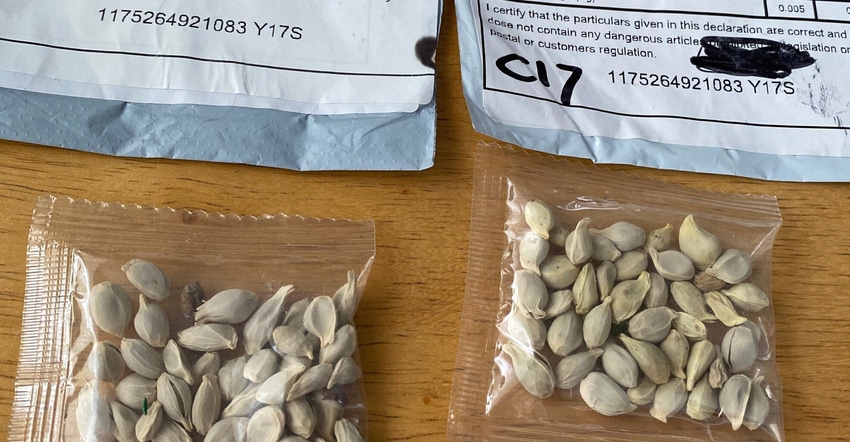August 4, 2020

The Michigan Department of Agriculture and Rural Development is working with USDA to investigate multiple reports of consumers receiving unsolicited packages of seeds in the mail that appear to be sent from China and other countries.
USDA believes these packages may be the result of a “brushing scam,” where people receive unsolicited items from a seller who then posts false customer reviews to boost sales.
Most of the mail misleadingly states the packages contain jewelry, but actually contain seeds of varying size, color and shape. The USDA is collecting the seeds and packaging to determine if they are of concern to agriculture or the environment.
Consumers who have received unsolicited seeds should take the following steps:
Do not open or plant the seeds. If seed packets already are opened, place all material, including the packaging, in a sealed bag.
Fill out a brief questionnaire and mail the seeds and the packaging to: USDA/APHIS/PPQ; 11200 Metro Airport Center Drive; Suite 140; Romulus, MI 48174; Attn: USDA Identification Staff.
If seeds already have been planted or if unable or unwilling to mail the seeds and packaging, contact USDA state plant health director Craig Kellogg at 734-942-9005 or [email protected] for guidance.
Do not put seeds or plant material in a compost pile.
“While the seeds are not expected to be harmful to humans or pets, they could contain an invasive species or accidently introduce a pest or disease that could pose a serious risk to agriculture or the environment,” says Robin Rosenbaum, MDARD’s state plant regulatory official. “We appreciate everyone’s cooperation and assistance in safeguarding Michigan agriculture and natural resources.”
For more information on MDARD’s Pesticide and Plant Pesticide Management Division, visit michigan.gov/mdard.
Source: MDARD, which is solely responsible for the information provided and is wholly owned by the source. Informa Business Media and all its subsidiaries are not responsible for any of the content contained in this information asset.
You May Also Like




